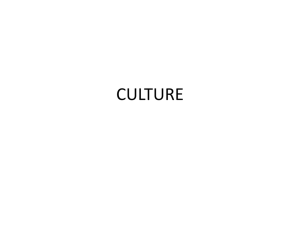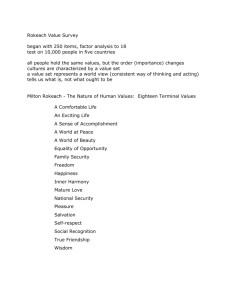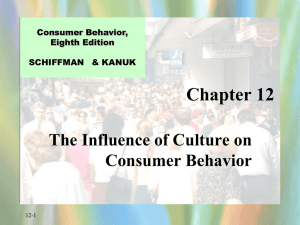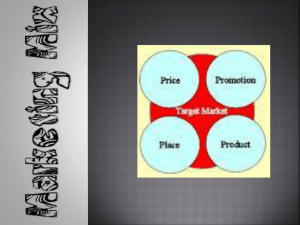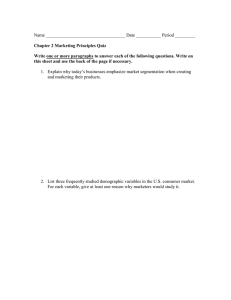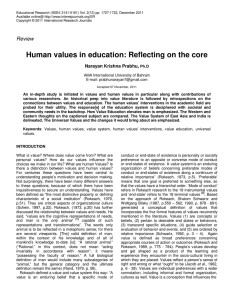File
advertisement
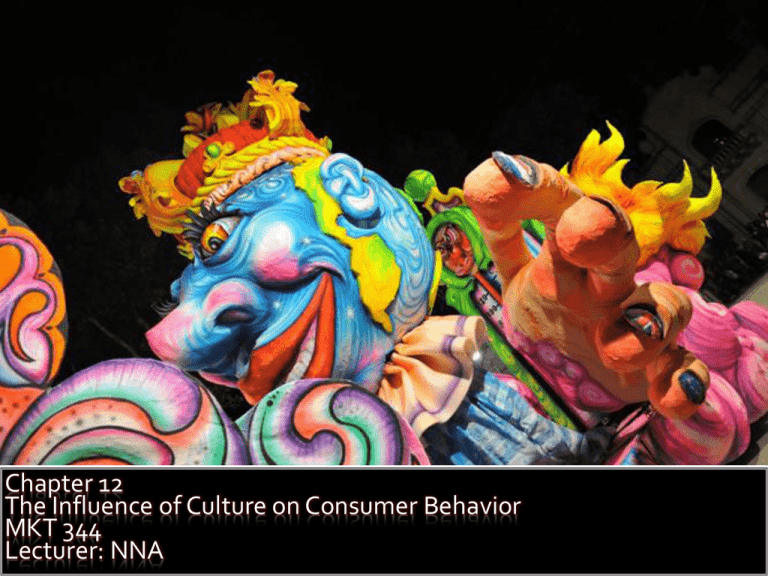
Consumer Behavior, Ninth Edition Schiffman & Kanuk Chapter 12 The Influence of Culture on Consumer Behavior MKT 344 Lecturer: NNA What is Culture? How Culture Is Learned The Measurement of Culture American Core Values Culture The sum total of learned beliefs, values, and customs that serve to regulate the consumer behavior of members of a particular society. Supranational National Group Copyright 2007 by Prentice Hall Culture satisfy needs Culture is learned Culture is dynamic Issues Enculturation and acculturation Enculturation The learning of one’s own culture Acculturation The learning of a new or foreign culture HSBC could successfully use Acculturation in their ads Issues Language and symbols Without a common language shared meaning could not exist Marketers must choose appropriate symbols in advertising Marketers can use “known” symbols for associations The old spice symbol may discourage the product to the teens Issues Ritual A ritual is a type of symbolic activity consisting of a series of steps Rituals extend over the human life cycle Marketers realize that rituals often involve ritual artifacts Products that are associated with or somehow enhance the performance of the ritual Birthday: cake Birth of child: silver spoon Wedding: white gown Valentines day: roses, candies Thanksgiving: turkey What are some rituals (religious, educational, social) that you have experienced? What artifacts or products were part of that ritual? How did marketers influence the choice of these artifacts? Issues Sharing of Culture To be a cultural characteristic, a belief, value, or practice must be shared by a significant portion of the society Culture is transferred through family, schools, houses of worship, and media Content Analysis Consumer Fieldwork Value Measurement Instruments Content Analysis A method for systematically analyzing the content of verbal and/or pictorial communication. The method is frequently used to determine prevailing social values of a society. Field Observation A cultural measurement technique that takes place within a natural environment that focuses on observing behavior (sometimes without the subjects’ awareness). Takes place within a natural environment Performed sometimes without the subject’s awareness Focuses on observation of behavior ParticipantObservers Researchers who participate in the environment that they are studying without notifying those who are being observed. Rokeach Value Survey (RVS) A self-administered inventory consisting of eighteen “terminal” values (i.e., personal goals) and eighteen “instrumental” values (i.e., ways of reaching personal goals) List of Values (LOV) A value measurement instrument that asks consumers to identify their two most important values from a nine-value list that is based on the terminal values of the Rokeach Value Survey Values and Lifestyles (VALS) A value measurement based on two categories: self- definition and resources Table 12.5 Excerpt from the Rokeach Value Survey TERMINAL VALUES INSTRMENTAL VALUES A comfortable life Ambitious An exciting life Broad-minded A world at peace Capable Equality Cheerful Freedom Clean Happiness Courageous National security Forgiving Pleasure Helpful Salvation Honest Social recognition Imaginative True friendship Independent Wisdom Intellectual Achievement and success Activity Efficiency and practicality Progress Material comfort Individualism Freedom External conformity Humanitarianism Youthfulness Fitness and health Have you observed changes in any of the core values over the past 4 years? Why did those changes occur? How have they affected marketers? Is shopping what we do to create value in our lives? The younger generation is shopping more This has an effect on credit card debt
